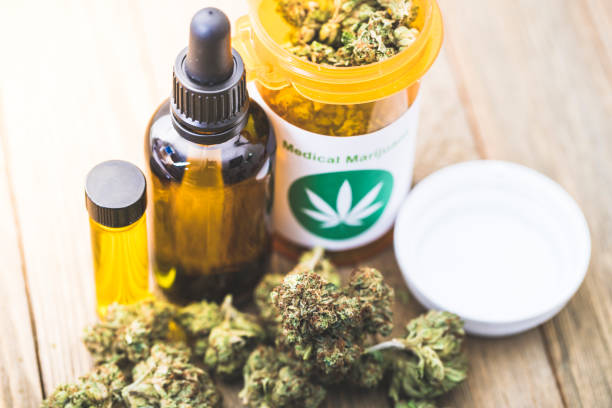From Recreational to Medicinal: The Evolution of Cannabis Use
From Recreational to Medicinal: The Evolution of Cannabis Use
Blog Article

Cannabis has a long and complex history that weaves through cultures and societies around the world. Once primarily regarded as a recreational substance, its potential healing properties have garnered increased attention and acceptance in recent years. As research continues to unveil the therapeutic benefits of medical marijuana, the conversation surrounding its use has shifted dramatically, leading to significant changes in legislation and public perception.
The evolution of cannabis from a taboo plant to a recognized medical treatment reflects broader societal changes regarding health, wellness, and the understanding of alternative medicine. Patients suffering from chronic pain, anxiety, and various other ailments are increasingly turning to medical marijuana as a viable option, challenging traditional views and prompting a reevaluation of its role in modern medicine. This shift not only showcases the plant's versatility but also highlights the need for continued dialogue and exploration into its applications and effects on health.
Historical Context of Cannabis Use
Cannabis has been utilized for thousands of years, with evidence of its use dating back to ancient civilizations. The earliest recorded use of cannabis as medicine can be traced to Chinese texts from around 2737 BCE, where the plant was noted for its therapeutic properties. Ancient societies in Egypt and India also recognized its benefits, incorporating cannabis into their medical practices for a variety of ailments, including pain relief and digestive issues.
As time progressed, cannabis spread across the globe, gaining acceptance in various cultures. In the 19th century, cannabis extracts became widely available in Western medicine. Renowned figures such as Queen Victoria's physician, Sir J. Russell Reynolds, advocated for its use to alleviate menstrual pain. However, as attitudes toward cannabis began to change in the early 20th century, the stigma associated with its recreational use started to overshadow its medicinal benefits.
The prohibition of cannabis in many countries during the 20th century significantly hampered its medical exploration. This shift led to a gap in research and understanding of its potential therapeutic applications. Despite this, the resilience of the medicinal cannabis movement persisted, culminating in a resurgence of interest in the late 20th and early 21st centuries. Today, medical marijuana is increasingly recognized for its benefits, leading to a broader acceptance and legalization in numerous regions.
Scientific Research and Medical Benefits
Research into medical marijuana has surged in recent years, uncovering a wealth of potential benefits for a variety of health conditions. Studies have highlighted its effectiveness in alleviating chronic pain, reducing inflammation, and managing symptoms associated with conditions such as epilepsy and multiple sclerosis. The active compounds in cannabis, particularly cannabinoids like THC and CBD, interact with the body's endocannabinoid system, which plays a crucial role in regulating pain, mood, and immune response. This has led to a growing acceptance of medical marijuana as a viable alternative to traditional pharmaceuticals.
West Virginia Medical Marijuana Resources
Moreover, medical marijuana has shown promise in addressing mental health issues. Preliminary research indicates that cannabinoids may help reduce anxiety and depression symptoms, offering a potentially safer treatment option for individuals who have not found relief with standard medications. In addition, studies have suggested that cannabis could play a role in managing post-traumatic stress disorder (PTSD) by helping to ease the distressing symptoms associated with trauma. As more research unfolds, the understanding of how medical marijuana can aid in mental health continues to evolve.
The expanding body of scientific evidence is encouraging more healthcare professionals to consider medical marijuana as part of a comprehensive treatment plan. As a result, many patients are gaining access to cannabis-based therapies under medical supervision. However, ongoing research is critical to fully understand the long-term effects, optimal dosages, and potential interactions with other medications. The continued exploration of medical marijuana's benefits may ultimately transform how healthcare providers approach treatment for various conditions, offering new hope for patients seeking relief.
Legalization and Current Trends
The legalization of medical marijuana has gained significant traction across many regions in recent years. With an increasing number of states and countries recognizing its therapeutic potential, the conversation surrounding cannabis has shifted from one of prohibition to acceptance. This change has been driven by research that highlights the positive effects of cannabis on various medical conditions, including chronic pain, anxiety, and epilepsy. As a result, the medical marijuana market has rapidly expanded, providing patients with diverse options for treatment.
Current trends indicate a growing acceptance of medical marijuana among healthcare professionals. More doctors are becoming knowledgeable about its benefits and are willing to recommend it to patients who may benefit. Additionally, studies continue to emerge that support its efficacy and safety, further integrating medical cannabis into conventional healthcare. Furthermore, advancements in cultivation and production techniques have led to higher quality products that are more accessible to patients in need.
Consumer attitudes towards medical marijuana are also shifting. Many individuals now consider cannabis a legitimate treatment option, and the stigma that once surrounded its use is gradually diminishing. As the market matures, we are seeing an increase in specialized dispensaries, and educational resources that empower patients to make informed choices regarding their health. This evolving landscape indicates a promising future for medical marijuana as more people recognize its potential benefits in managing various health issues.
Report this page